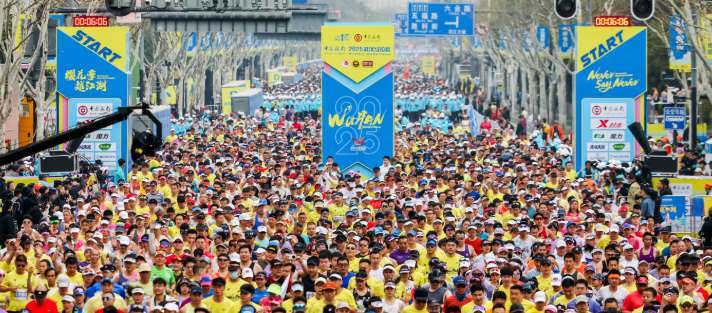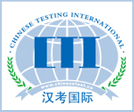
Hospital Introduction
Hebei Central Hospital is a comprehensive tertiary Grade A hospital directly under the Provincial Health Commission, integrating medical treatment, teaching, scientific research, prevention, health care, rehabilitation, and first aid. Established in Baoding in 1909, rebuilt in Tianjin in 1959, moved to Shijiazhuang with the provincial capital in 1968, and moved to No. 348 Heping West Road in Shijiazhuang in 1975.
Development scale
The hospital has a total of 2760 beds and currently has 2206 open beds. There are 74 clinical medical technology departments, with 572 senior professional and technical personnel, 31 doctoral supervisors, and 265 master's supervisors. There are also 23 experts who enjoy special government allowances from the State Council, 3 provincial high-end talents, 14 provincial excellent experts, 3 provincial outstanding professional and technical talents, and 15 young and middle-aged experts who have made outstanding contributions at the provincial and ministerial levels, Eight experts who enjoy special allowances from the provincial government; The total value of medical equipment in use is about 982 million yuan, including the province's first gamma knife, the first scientific research PET/CT, the first high-end FORCE open-source CT, the first large-aperture silent 3.0T magnetic resonance, medical linear accelerator, SPECT/CT, and a large number of advanced medical equipment. Their level and quantity are at the leading level in the province, providing strong guarantees for the high-quality development of medical work.

The hospital has a complete set of comprehensive specialties. Since the 13th Five Year Plan, it has been approved with 6 national clinical key specialties, 27 provincial clinical key specialties, 3 provincial clinical medical research centers, 3 provincial key laboratories, and 20 provincial key disciplines. In 2022, the hospital will carry out more than 50 provincial-level and above new technology and new projects, including orthopedic surgery technology assisted by intelligent robots, SPECT/CT precision diagnosis and treatment technology, pre eclampsia prediction, single gene disease detection, second-generation sequencing (including whole exome sequencing), chromosome copy number variation (CNV), uterine perfusion, mediastinoscopy and thoracoscopy technology, lung ultrasound, quantitative dynamic enhanced magnetic resonance imaging technology, corneal transplantation, etc; We have developed 3D printing technology and established a digital medical 3D printing center to provide personalized surgical plans for surgical design in departments such as orthopedics, oncology, neurosurgery, urology, cardiothoracic surgery, hepatobiliary surgery, rehabilitation, dentistry, and plastic surgery in hospitals; Conducting interventional ultrasound, including radiofrequency ablation, tissue puncture, cyst sclerosis, catheter drainage, etc. Among them, thyroid nodule puncture and ablation technology, a "one-stop" solution to patients with thyroid nodules, is at a leading level in China and the province. The level of diagnosis and treatment in the interventional treatment of cardiovascular diseases, cerebrovascular diseases, endoscopic treatment of digestive tract diseases, diagnosis and treatment of diabetes and its complications, diseases with multiple system dysfunction in the elderly, treatment based on syndrome differentiation of optic atrophy, surgical treatment of intractable epilepsy, cardiac rehabilitation, rehabilitation medicine, reproductive genetics and other aspects has reached the provincial and domestic leading level, and many technologies have been completed without records in the province.
Research and teaching
The hospital is affiliated with the Clinical Medicine School of Hebei Medical University, the Affiliated Hospital of North China University of Science and Technology (non affiliated), and the Affiliated Hospital of Hebei North University (non affiliated). It is also a national clinical pharmacology base, a national standardized training base for resident physicians, a national training base for general practitioners, a national training base for cardiovascular intervention diagnosis and treatment technology, a provincial institute of endocrine and metabolic diseases, a provincial institute of geriatric medicine, and a provincial institute of epilepsy The affiliated units of nearly 20 clinical research and training institutions, including the Provincial Institute of Cell Biotechnology, the Provincial Center for Radioactive Particle Implantation and Treatment of Tumors, the Provincial Key Laboratory of Metabolic Diseases, the Provincial Key Laboratory of Molecular Medicine, and the Provincial Key Laboratory of Brain Networks and Cognitive Impairment Diseases, train over a thousand students of various types every year. In 2022, 243 scientific research projects were approved and 532 papers were published, including 178 SCI papers. The academic atmosphere of the entire institute is strong, and the level of scientific research has been improving year by year.
Fast Track




Events
More+-

Cherry Blossoms for Marathon in Spring, Lotus for River Crossing in Summer, Osmanthus for Tennis in Autumn, Plum Blossoms for Ice and Snow in Winter – Wuhan's 2026 Sports Events Promise Non-Stop Excitement
-

Top Spring Festival Events to Catch in the City
-

Panda Plan: The Magical Tribe
-

Suzhou Art Museum Collection Series Exhibition
-

New Year Art Exhibition of Fuhe Art Studio











 京公网安备
京公网安备